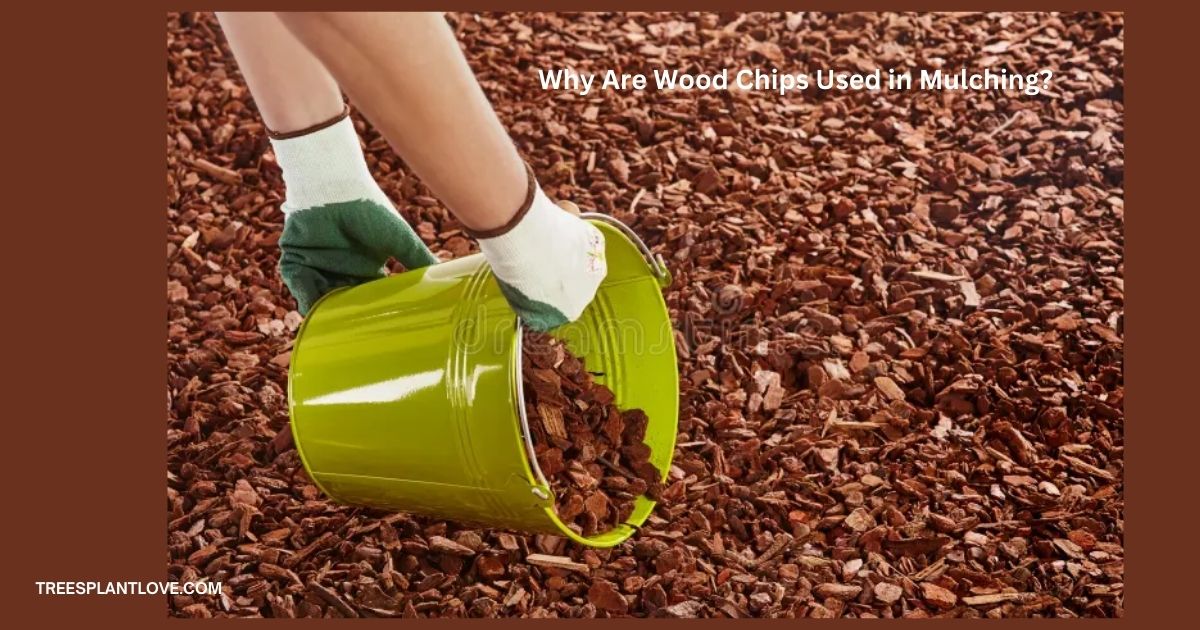
Why Are Wood Chips Used in Mulching? Benefits for Garden Health and Soil
Why Are Wood Chips Used in Mulching?: Mulching is a key practice in gardening and landscaping, known for its numerous benefits to plant health, soil quality, and the overall aesthetics of a garden. Among the various mulching materials available, wood chips have emerged as one of the most popular choices.
These natural by-products, derived from chipped or shredded wood, offer a wide range of advantages that make them ideal for mulching purposes. In this article, we will explore why wood chips are commonly used in mulching and how they contribute to creating healthy, vibrant landscapes.
Improves Soil Moisture Retention
One of the primary reasons wood chips are used in mulching is their ability to retain soil moisture. When applied as a layer over the soil, wood chips act as a barrier that helps reduce evaporation. This is especially beneficial in regions with hot summers or dry conditions, where water conservation is critical.
- Water Conservation: Wood chips absorb and retain moisture, ensuring that the soil remains consistently moist for a longer period. This helps prevent drought stress in plants, reducing the need for frequent watering.
- Even Moisture Distribution: The chips help regulate moisture levels, allowing the soil to absorb water more evenly. This results in healthier root systems and more resilient plants.
Suppresses Weed Growth
Weeds are a common nuisance in gardens and landscapes, competing with desirable plants for water, nutrients, and sunlight. Wood chipsprovide an effective, natural solution to weed control.
- Weed Barrier: When applied in a thick layer, wood chips block sunlight from reaching weed seeds in the soil, preventing them from germinating and growing. This creates a more controlled environment where desirable plants can thrive without the competition from invasive weeds.
- Reduces the Need for Chemical Herbicides: By using wood chips as mulch, gardeners can reduce or even eliminate the need for chemical herbicides, which can be harmful to the environment and beneficial insects.
Improves Soil Structure and Fertility
Wood chips have the ability to improve soil structure over time, enriching the soil and promoting healthier plant growth.
- Organic Matter: As wood chips break down, they decompose and add valuable organic matter to the soil. This process improves soil structure by enhancing its ability to retain moisture and nutrients, which is vital for plant health.
- Nutrient Release: The decomposition of wood chips releases essential nutrients, such as nitrogen and phosphorus, into the soil. This contributes to the overall fertility of the garden, encouraging vigorous plant growth.
- Increased Microbial Activity: The presence of wood chips in the soil stimulates the growth of beneficial soil microorganisms. These microbes help break down organic matter and release nutrients, further improving soil health.
Enhances Aesthetic Appeal
Wood chipsnot only provide functional benefits to the garden but also enhance its visual appeal. Available in various colors and textures, wood chips can complement a wide range of landscaping styles.
- Natural Look: The earthy tones of wood chips blend seamlessly with the natural environment, creating a rustic, harmonious look in garden beds, walkways, and around trees or shrubs.
- Variety of Options: Wood chips come in various types, such as cedar, pine, and hardwood, each offering a different texture and color. This versatility allows gardeners to choose the perfect wood chips to match their landscaping vision.
Reduces Soil Erosion
Soil erosion, caused by wind and water, is a common issue in areas with exposed, bare soil. Wood chips can help combat erosion by stabilizing the soil surface.
- Soil Protection: The layer of wood chips acts as a protective shield, reducing the impact of rainfall and wind on the soil. This prevents the loss of valuable topsoil and helps maintain soil structure.
- Promotes Healthy Root Systems: By reducing erosion, wood chips help maintain a stable environment for plant roots, which can grow deeper and stronger, contributing to overall plant health.
Helps Regulate Soil Temperature
Extreme temperature fluctuations can stress plants, especially in climates with hot summers and cold winters. Wood chips help moderate the temperature of the soil, keeping it within a range that is more favorable for plant growth.
- Temperature Insulation: During hot weather, wood chips provide insulation by keeping the soil cooler and preventing it from drying out. In colder months, they help retain warmth in the soil, protecting plant roots from frost damage.
Sustainability and Eco-Friendliness
Wood chips are an eco-friendly choice for mulching, as they are typically made from waste wood products, such as tree trimmings, sawmill scraps, or recycled wood materials. This makes them a sustainable alternative to other mulching materials.
- Waste Reduction: By repurposing wood waste, the demand for new resources is minimized, contributing to the reduction of landfill waste and promoting a circular economy.
- Biodegradable: Wood chips are biodegradable, meaning they will naturally decompose over time, returning to the soil as organic matter and further enhancing soil health.
Long-Lasting and Low Maintenance
Wood chips are durable and can last for several seasons before needing to be replenished. Unlike some other mulching materials, such as grass clippings or straw, wood chips decompose slowly, providing long-term benefits.
- Less Frequent Reapplication: Due to their slow decomposition rate, wood chips require less frequent reapplication compared to other types of mulch. This makes them a cost-effective and low-maintenance choice for gardeners.
- Resistant to Compaction: Wood chips are less prone to compaction, ensuring that the mulch remains fluffy and effective at moisture retention and weed suppression for an extended period.
Conclusion
Wood chips are an excellent choice for mulchingdue to their numerous benefits for soil health, plant growth, and the environment. They enhance moisture retention, suppress weed growth, improve soil structure, and contribute to aesthetic appeal.
Additionally, wood chips help reduce soil erosion, regulate soil temperature, and are a sustainable, eco-friendly option for gardeners. Whether you’re looking to improve your garden’s health or create a more attractive landscape, wood chips provide a versatile and long-lasting solution that benefits both the plants and the environment.
By incorporating wood chips into your mulching routine, you’re not only promoting a healthier garden but also contributing to sustainable gardening practices that support the ecosystem.

Leave a Reply